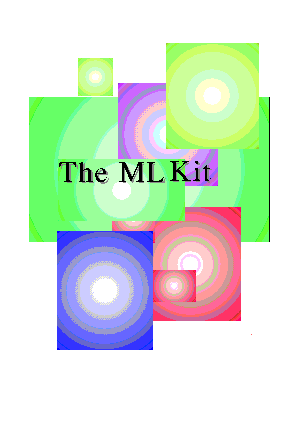About
By Martin Elsman and Mads Tofte
History, Goals and Approach

The development of the MLKit began in 1989 at Edinburgh University. Originally, the project had two purposes:
- to provide an implementation that is consistent with the language definition
- to provide a service to the research community by providing a highly modular system, parts of which can be reused by other compiler writers
These goals are still intact. Specifically, in order to facilitate code reuse and reliability of the front-end of the MLKit, we have rewritten the Match compiler (using the same approach as Moscow ML uses) and cleaned up the implementation of the static semantics of the Core language (the StatObject module).
Since the work on region-based memory management started in the MLKit (in 1994), goals specific to region-based memory management have been added:
- to provide an implementation that could provide ML programmers with a high degree of control over memory resources
- to push the compilation technology for regions to the point where programs could be compiled at a tolerable speed and result in fast-running programs
Version 2 of the Kit did provide good control over memory resources for Core ML programs, but it did not compile all of Standard ML and compilation was very slow.
Version 3 compiles all of Standard ML, in particular Modules are compiled using a technique called static interpretation. Moreover, considerable effort was devoted to tuning the system. The general approach we take in the Kit is to try to get the functionality right first and then gradually replace inefficient data structures and algorithms with better ones. A nice side-effect of this strategy is that the Kit contains more and more reusable modules that implement classical data structures and algorithms from the literature. Examples include sorting, union-find, Patricia trees and directed graphs (strongly connected components, etc.)
Version 4.0.0 has support for garbage collection in combination with region inference and the HP backend of version 3.0 has been replaced with a native backend for Intel’s x86 architecture and a bytecode backend. Many more features have been added to the MLKit since version 3.0; see the documentation for details.
Acknowledgments
The MLKit is software partly delivered by the DART research project, which is sponsored by the Danish Research Council for Natural Sciences. People whom we wish to thank for contributing with bug reports include, but are not limited to (in alphabetical order) Johnny Andersen, Ken Friis Larsen, Daniel Wang, and Stephen Weeks.